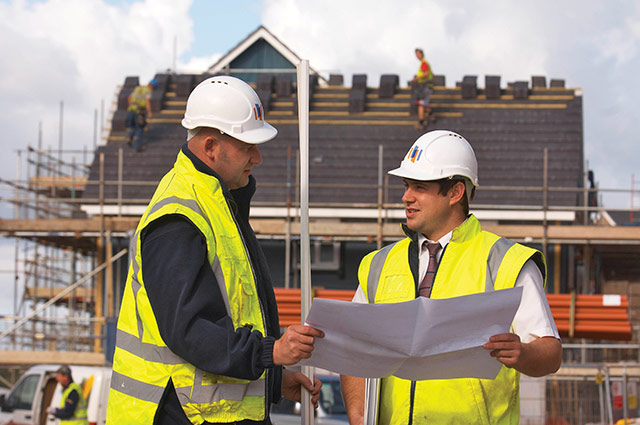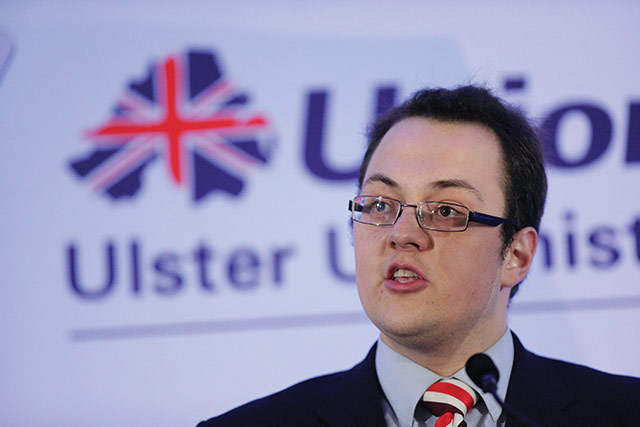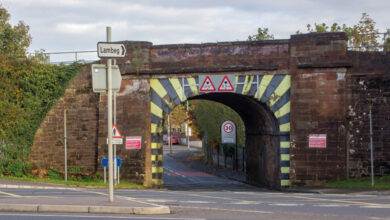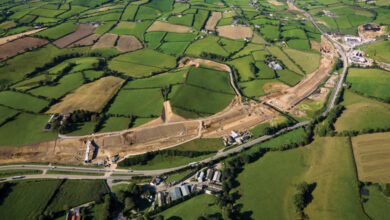Planning in action

Over a year after the transfer of planning powers from central government to local councils, UUP councillor and chair of the planning committee at Lisburn and Castlereagh City Council, Alex Redpath, talks to agendaNi about the role local councillors have been playing in trying to improve the system
Councillor Alex Redpath admits that he fields four to five calls a week from constituents seeking his help in influencing planning applications, constituents who he “firmly” redirects, explaining that as a member of the planning committee’s decision-making process he has to remain removed from any form of lobbying. It’s a situation that councillors across Northern Ireland, involved in the various council’s planning committees, have been getting to grips with since 1 April 2015, when the 11 local councils took on the majority of the planning function. Under fresh guidelines, councillors taking decisions on planning matters, within their own area, must effectively step away from their role as local politicians to provide a fair system.
Recognising a clash of interests for locally-elected politicians to become neutral when making decisions on planning, the councils have provided extensive training for councillors on how to differentiate the two roles, while the Department for Infrastructure (DfI) also provide an advisory service. Asked whether he could see a disadvantage for constituents whose local councillor sat on the planning committee, Redpath said: “Councillors not on the planning committee can lobby as they see fit. The planning committee members cannot be seen to influence an application because that would be inappropriate. It’s both an advantage and a disadvantage for the constituent. If a constituent is looking for a councillor to actively lobby on their behalf and to speak on behalf of their application, then they are better going to a councillor who is not on the planning committee. However, the planning committee members wield a great deal of power. It’s a bit like asking if you are better off being a judge or a barrister. Barristers have a lot more freedom on what they do or how they behave but ultimately, the decision is made by the judge.”
 Redpath believes that the new structure makes for a more open system. “It’s much more transparent. I didn’t have a lot of time for the old Department of Environment (DoE) system, the planners sat in offices far away from where people were doing their daily business. They made their decisions and it came before our councillors for our comments and that was it. Now we make the decisions, we are locally accountable to our local people and we have the local knowledge. We make our decision strictly on the basis of planning policy but the advantage of us making that decision rather than the Department is that we are aware of the situation on the ground, we know the local area and we know how the application fits in with the council’s priorities. We know how all these things come together with the development plans and community plans and it is widely believed that we can make a better decision in the round for our constituents.”
Redpath believes that the new structure makes for a more open system. “It’s much more transparent. I didn’t have a lot of time for the old Department of Environment (DoE) system, the planners sat in offices far away from where people were doing their daily business. They made their decisions and it came before our councillors for our comments and that was it. Now we make the decisions, we are locally accountable to our local people and we have the local knowledge. We make our decision strictly on the basis of planning policy but the advantage of us making that decision rather than the Department is that we are aware of the situation on the ground, we know the local area and we know how the application fits in with the council’s priorities. We know how all these things come together with the development plans and community plans and it is widely believed that we can make a better decision in the round for our constituents.”
However, a recent annual review of the planning statistics since councils took over do not reflect a wholly positive switch. Across the 11 councils, the percentage of planning applications decided were down over 5 per cent, average processing time for major development applications was 16 weeks longer than the 30 week statutory target and local applications took four weeks longer than the 15 week target. Redpath described the process as “short-term pain for long-term gain” and added that the figures were an “inevitable consequence of the very big changes we’ve had in the planning system”. “The transfer of planning from DoE to the councils was inevitably disruptive for the planning process,” he said. “We are finding the biggest challenge is dealing with legacy applications from the old department. In Lisburn and Castlereagh we have set up a dedicated legacy team to pro-actively address those. My planners are working extremely hard to clear the backlog and as that backlog clears, we’re going to move on to getting the newer applications sorted out. Once that backlog clears we will be in a much better position but sadly it was an inevitable consequence of the very big changes we’ve had in the planning system.
“It’s a better system. This is short-term pain for long-term gain. I believe that it makes a lot more sense for decisions to be made locally, close to where people are working, with much more transparency and with much more ability to feed in with decisions being made by locally elected and locally accountable representatives, rather than civil servants sitting dozens of miles away from the evidence. Now, if local people don’t like a planning system they vote for different councillors who do it differently.”
Looking towards the future, Redpath said that he hoped that improved planning performance would complement a key priority within his council of attracting commercial applications. “In terms of improving outcomes, we want any person coming into Lisburn and Castlereagh to invest and create jobs, to have complete confidence that they are going to be dealt with quickly and they are going to get an answer to their queries. As deputy mayor last year I sat opposite a number of businessmen and talked about what we needed to do for them to get them involved in investing. Their biggest interest was whether they could rely on our planning system being transparent, efficient and timely. I want to deliver for those people and I want to make it easier for them to deliver in my district,” he added.
“Finding our feet was a big thing. We have worked extremely hard in the last year and I think we have hit the ground running. We have taken to these new responsibilities well and as we grow more confident and comfortable with our role there are endless possibilities to improve outcomes.” Asked whether placing power within an elected system, likely to change, meant inevitable future disruptions, Redpath said: “Every time new people are elected on to the planning committees there will be a learning process but thankfully that is something we can manage going forward. We will never have a situation again where we have 11 new members with a new chair and vice-chair coming into the council to make these decisions. We will have a build-up of institutional knowledge from which to learn from, we will have built up a much bigger case history to learn from, there will be much more judicial precedent and there will be precedent coming from the planning appeal commission, to let us know how they are going to approach things.”
Alex Redpath is a solicitor and former deputy mayor of Lisburn and Castlereagh City Council. As a councillor for the Killultagh ward he currently chairs the planning committee.





